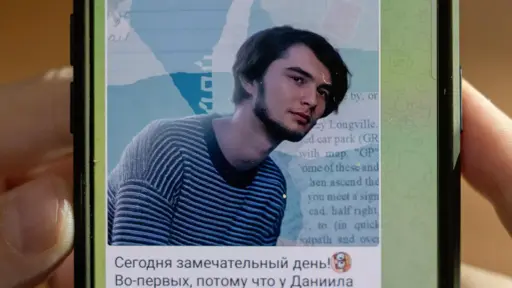The 28-year-old was later sentenced to 20 years in jail. His case illustrates the severity of the crackdown on dissent – both real and imagined – in Russia since the invasion of Ukraine. And how ordinary Russians are again living under the shadow of denunciation, the old Soviet practice of informing on colleagues, neighbours, friends and even family.
On the website of the state school where he worked, there are still photos of the classroom where he taught, decorated with posters of famous paintings, including a self-portrait by Van Gogh. But Klyuka’s life took a nightmarish turn one day in February 2023 when he was arrested by masked members of Russia’s feared FSB security service. He was accused of sending 135,000 rubles (around $1,380) in cryptocurrency to Ukraine’s ultranationalist Azov brigade, classified as “terrorist” in Russia – a charge he denies.
Klyuka believes all this happened because he idly scribbled moustaches, horns and beards onto photos of officials in a pro-Kremlin newspaper that staff at his school were expected to read. AFP has been able to piece together his descent into the depths of the Russian penal system, where prisoners can sometimes disappear without a trace, through letters he has exchanged with a Russian anti-war activist exiled in Italy.



Coming soon to a country near you